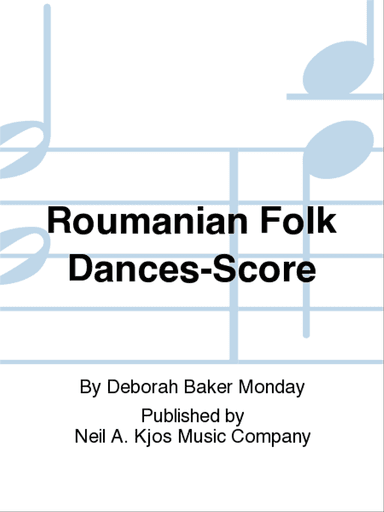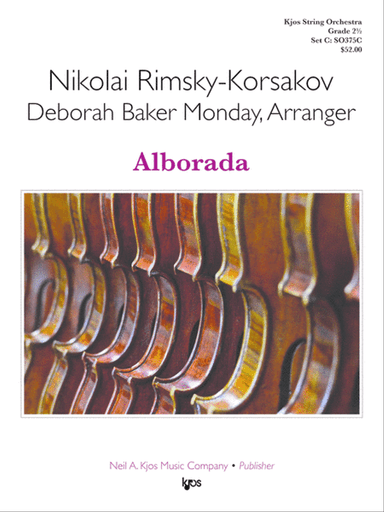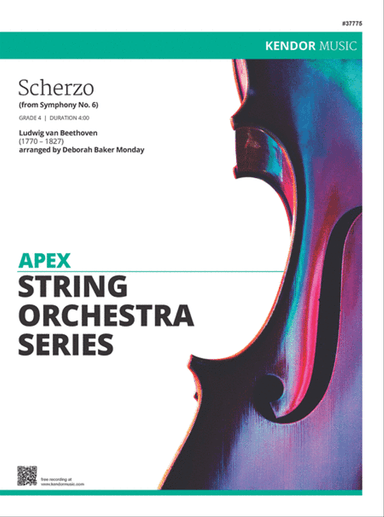Unavailable
Dies Irae: Fantasia is currently unavailable
We can no longer provide this arrangement through Sheet Music Stores. The listing stays online so you can learn about the piece and explore alternatives.
Try these next steps
- Discover similar sheet music curated for you below.
- Search for “Dies Irae: Fantasia” across our catalog.
About this arrangement
Orchestra Cello, Contrabass, Piano, Viola, Violin 1, Violin 2, Violin 3 - Grade 3 SKU: CF.CAS70 Composed by Deborah Baker Monday. SWS FS. Carl Fischer Concert String Orchestra Series. Set of Score and Parts. With Standard notation. 8+8+2+5+5+3+5+12 pages. Duration 3 minutes, 36 seconds. Carl Fischer Music #CAS70. Published by Carl Fischer Music (CF.CAS70). ISBN 9780825891502. UPC: 798408091507. 9 x 12 inches. Key: E minor.The Dies Irae is a hymn from the 13th century based on a poem describing the day of judgment, with the Latin words translating to mean “day of wrath.” Deborah Baker Monday has taken the Dies Irae and interspersed some of her favorite settings of the theme throughout her freely composed Fantasia. Students will enjoy exploring the many techniques used in composing this fantasy, and there is also the opportunity to have students engage in critical listening activities to recognize the Dies Irae in many musical masterpieces.Dies Irae is a hymn from the thirteenth century based on a poem which describes the day of judgement where some will be saved and others will not. The Latin words “dies irae” literally mean “day of wrath.”The Dies Irae hymn became one of the sequences used in the Catholic liturgy. These sequences were based on various texts which were added to the jubilatio (melismas over the final syllable of the Alleluias) relating to the liturgy of the day. The Dies Irae was incorporated into the Requiem Mass (Mass for the Dead)Many composers have written a Requiem Mass (Mozart, Verdi, and Berlioz to name a few) and have included the Dies Irae. Other composers have chosen to use a more positive or uplifting part of the requiem such as Pie Jesu or In Paradisi- um along with the standard parts of the mass (the Kyrie, Sanctus and Agnus Dei).The tune of the Dies Irae is a somber plainchant (Gregorian chant) with descend- ing character (Do-Ti--Do-La-Ti-Sol-La). It is easily recognized and has been quoted in numerous works by classical composers from Franz Joseph Haydn (Symphony No. 103) to Stephen Sondheim (Sweeney Todd). You may also know the Hallow- een song Ghost of John, which is also based on this tune.Ms. Monday has taken the Dies Irae and interspersed some of her favorite settings of the theme into this freely composed fantasia. Students will enjoy exploring the many techniques used in composing this fantasy. There is also the opportunity to have students engage in critical listening activities to recognize the Dies Irae in many musical masterpieces. About Carl Fischer Concert String Orchestra SeriesThis series of pieces (Grade 3 and higher) is designed for advancing ensembles. The pieces in this series are characterized by:Expanded use of rhythms, ranges and keys but technical demands are still carefully consideredMore comprehensive bowing techniquesViola T.C. includedCareful selection of keys and degree of difficulty for advancing musicians
Related sheet music

Fantasia on Dies Irae for Carillon

The Real Little Classical Fake Book - 2nd Edition
various

Roumanian Folk Dances-Score
deborah baker monday

Classical Fake Book – 2nd Edition
various

Allegro
george frideric handel, deborah baker monday

Scherzo
johannes brahms, deborah baker monday

Isle of Anglesey
deborah baker monday

Alborada (from Capriccio Espagnol)
deborah baker monday

Fantasia
walter kraft

Fantasia on Dies Irae for Carillon (arr. Charles Semowich)
charles semowich, medieval chant

Scherzo (from Symphony No. 6)
deborah baker monday
